The Good Parts
So far, I've talked mostly about how life was pretty rough in Germany, and it definitely was. Nevertheless, there were some really good things about living there.
Work Culture
My work was great. This was my first real software engineering job outside of the military, and the culture change was just fantastic. All of my coworkers were easy to get along with, and the power distance between myself and my boss felt very small. I was constantly encouraged to make improvements to the codebase and was given lots of learning opportunities. The company I worked for was a small B2B fintech, though it was way more "fin" than "tech." This made the company culture very relaxed for the engineers. Moreover, I was the only native English speaker in the entire company, which made all interactions interesting. My coworkers were from all over the world: Germany, Portugal, Italy, China, India, Egypt, Mexico, Guatemala (and probably more that I'm forgetting). I also worked with some contracted devs from Poland which was another intriguing experience. This was all an adventure to me, and it felt great. My coworkers were very welcoming, and we had company get-togethers every other month or so. My HR was also very helpful; they translated emails/documents and anything else I needed. One thing that was clear from the beginning is that all of my coworkers, including my boss (and his boss), were putting life before work, which was great to see and experience. We were expected to use all 25+ days of leave, and my boss set the example.
Not everything was perfect. When I started, there was no test suite or CI/CD process (and all of the craziness that comes with stuff like that). However, everyone was very open to change, and I was able to implement some of these processes and knock down the tech debt. Nevertheless, it's always a bit of a minefield to be the new person on a team trying revamp bad processes. Also, because it was so relaxed, the engineering standards were low which led to some pretty awful code. Another consequence is that I felt there was little room to grow. Our product was small, niche and distinctively German. I would need years of language training before I could really grok the business domain.
Overall, I'd say that my work was the only thing going right in Germany, which was a huge blessing. Also, since the workload was light, I had ample time to handle all of the other immigration/housing issues that we were experiencing.
Gym
The gym is my happy place, and I've been to many over the years. I can say with certainty that the FitSevenEleven gym in Frankfurt is easily the best I've ever been to (plus my work gave me a discounted membership).
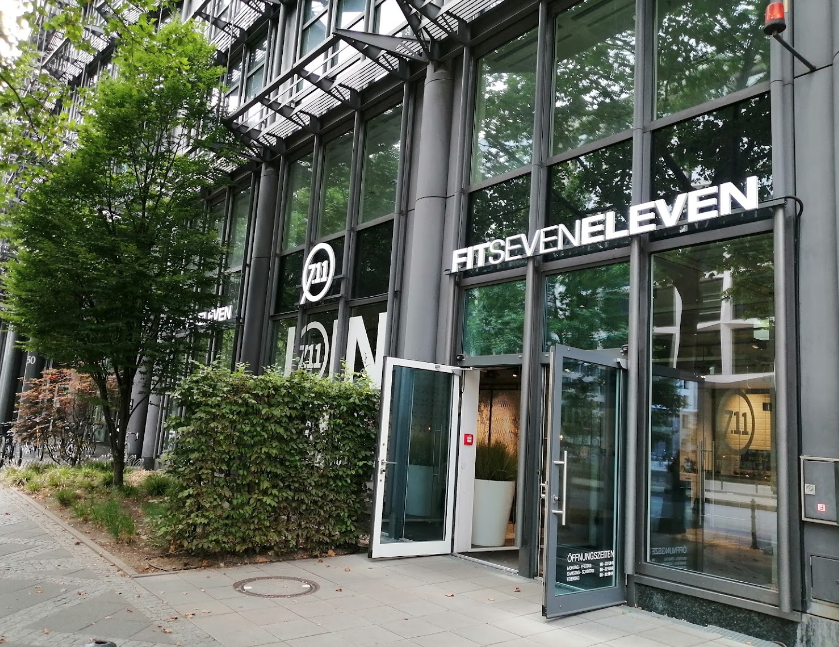
What made this gym so great was the atmosphere. They had plenty of equipment, and the facility itself was modern and clean, but the vibe of the place was so...European(?). For instance, there was an espresso machine in the gym that was always surrounded by older fancy-looking men in colorful velvet tracksuits with matching fanny packs. They always greeted me with "morgen!" and said goodbye with "ciao!". The gym had great equipment as well, plenty of squat racks and bench presses. I spent many hours in various FitSevenElevens around Frankfurt, and I miss them greatly.
Food
People typically think of German food as nothing but heavy meat and potatoes, and while that's definitely true of German restaurants, there is much more to be had from the local grocery stores. Going to Aldi/Lidl/Rewe took some getting used to. They were frequently out of things we wanted (like chickpeas and corn), and learning the German words for things like breadcrumbs ("Semmelbrösel") was a pain given that we couldn't use Google Translate in the grocery store due to the non-existent cell coverage. Nevertheless, we fell in love with many of the products like fresh ravioli, quality beer and wine, Euro chocolate and crusty bread. We also frequented various Indian and Asian grocery stores and got cheap, quality spices and other goods.
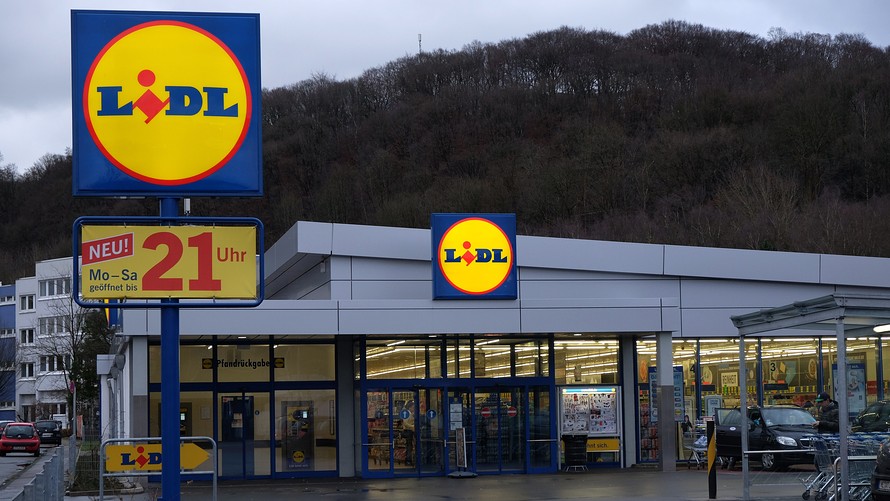 Typical Lidl (note the hours)
Typical Lidl (note the hours)
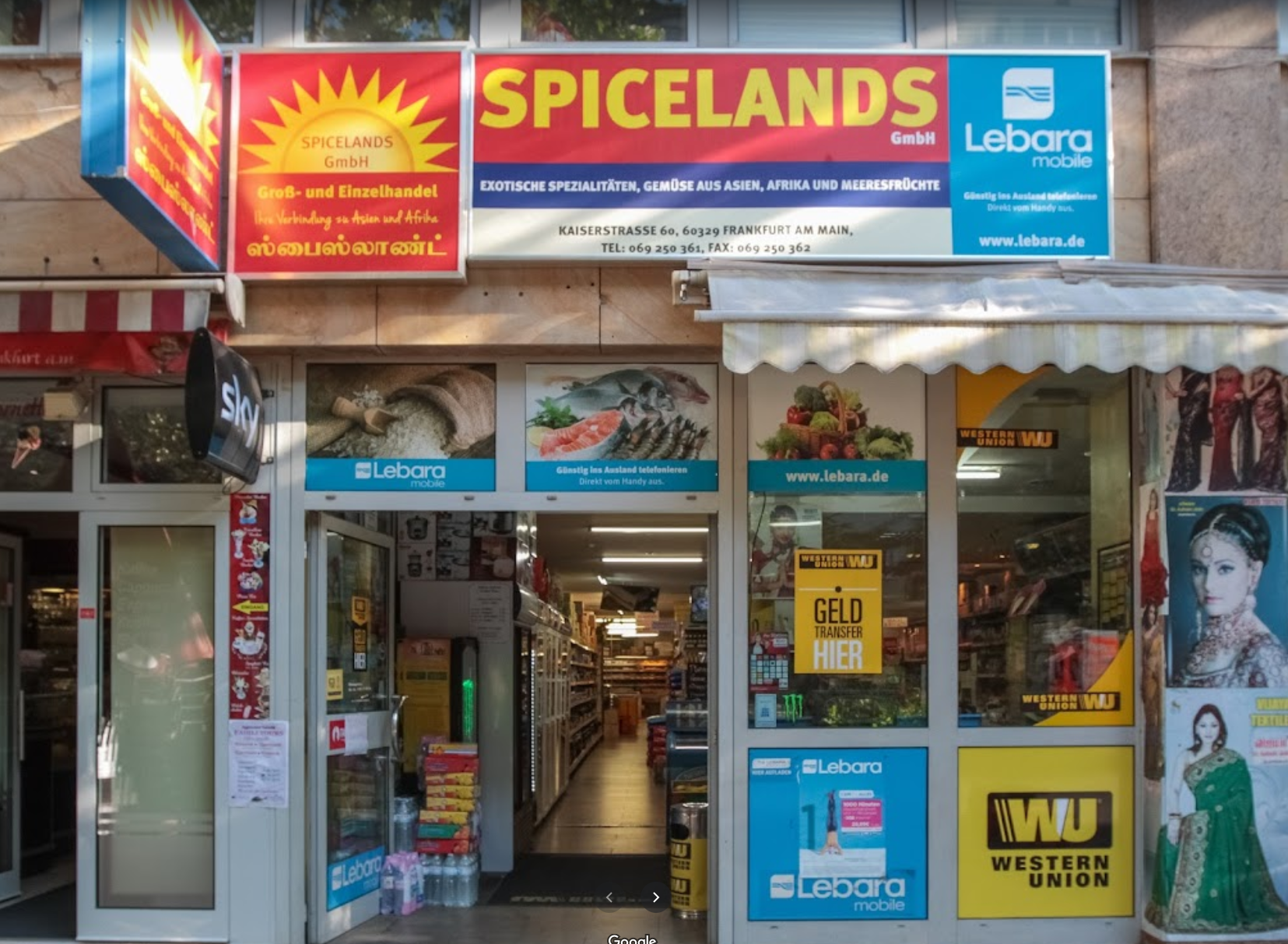 Spicelands, best Indian store in Frankfurt
Spicelands, best Indian store in Frankfurt
One of our absolute favorite things to do was go to the local Rewe and buy some fancy meat, cheese, wine, beer and bread. This was basically a Saturday morning, or even Friday night, ritual. The cheese was outstanding quality and eating proper Dutch Gouda and Swiss Gruyere was life-changing... We tried meats and cheeses from all over Europe and loved most of them. The beer and wine was also first-class, truly outstanding quality. I thoroughly enjoyed walking around the Getränkemarkt and trying all the beers from various German regions and monasteries. My wife also enjoyed getting local wine sourced from the Mosel, France and Austria. All of these foods were incredibly cheap compared to what we payed back in America. A 0.5L beer was typically less than 1 EUR and we never payed more than 6 EUR for a bottle of wine. It was also part of our ritual to grab rolls and pretzels from the bakery. A fresh pretzel was typically around 30 cents...how could anyone pass up that deal??
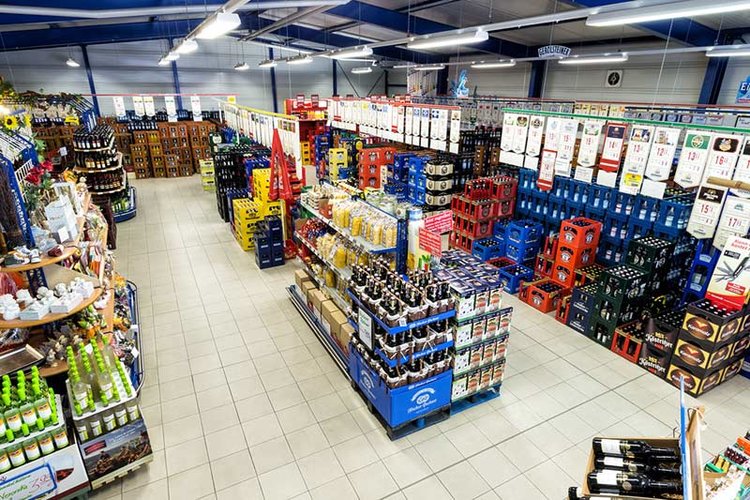 Getränkemarkt, beer can be bought by the case, but I typically bought 1 bottle at a time
Getränkemarkt, beer can be bought by the case, but I typically bought 1 bottle at a time
Language Course
Learning German via Duolingo is not enough to get by. In fact, most people told me to expect a minimum of 3 years to learn enough German to get by. Luckily, my work enrolled me in a language course at a nearby Sprachschule (language school). We had about 8 people in the class, all from different countries, and we learned basic German together. It was an absolute blast! The biggest benefit was learning proper pronunciation, and I could definitely see an improvement in my language skills. The only drawback was that it was a night class that lasted 2.5 hours twice a week. This meant that twice a week I wouldn't get home until after 8pm.
Vacations
Something we miss dearly is how easy and cheap it is to go on beautiful vacations. In the short time we were in Germany, we managed to take 3 vacations, and they were all outstanding. Each of the places we went to was around 3 hours away from Frankfurt by public transportation, no car required.
Die Mosel
Long-distance cycling trips have become our favorite type of vacation. We had already cycled the Danube, and now we wanted to try the Mosel. We rented some cheap bikes from a service called Swapfiets and took them on a Flixbus to Metz, France, where the Mosel river begins. From there, we spent 5-6 days riding alongside the river through French and German wine country all the way to Koblenz. It was fantastic. That said, if I were to do it again, I would get proper long-distance cycling bikes. Our Swapfiets bikes were meant to get around a city and were not suited for some of the terrain/hills we encountered. Nevertheless, we took this trip right after moving into our apartment in Bad Soden, and this was a great escape as we waited for our furniture to arrive.
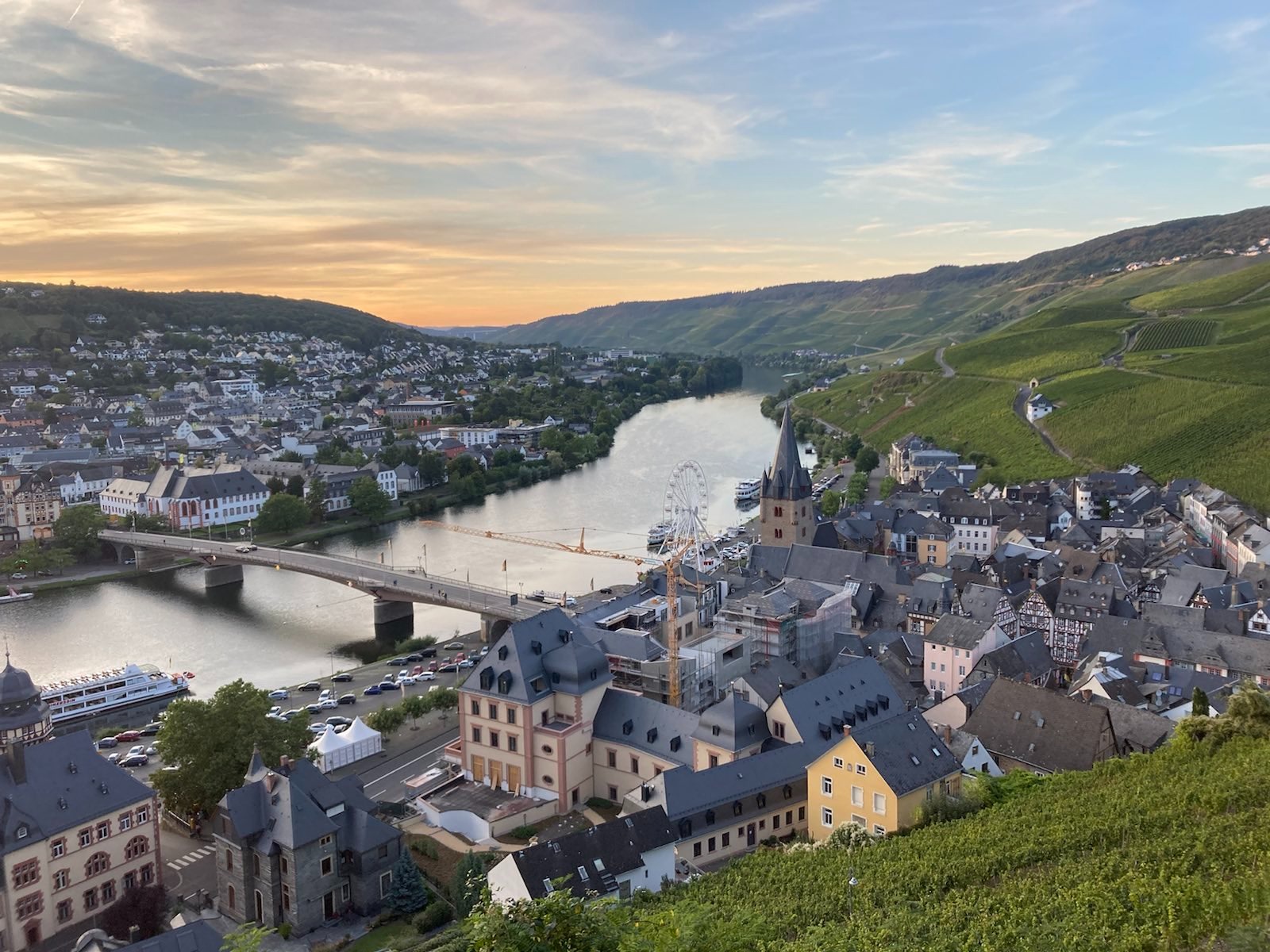 View from our dinner one night in Bernkastel-Kues on the Mosel
View from our dinner one night in Bernkastel-Kues on the Mosel
Luxembourg
During late December, we took a trip to Luxembourg to see the city and its Christmas market. While we were there, we learned that public transportation to anywhere in Luxembourg is completely free, no strings attached. We ended up traveling to a couple of other cities in Luxembourg to see castles and waterfalls.
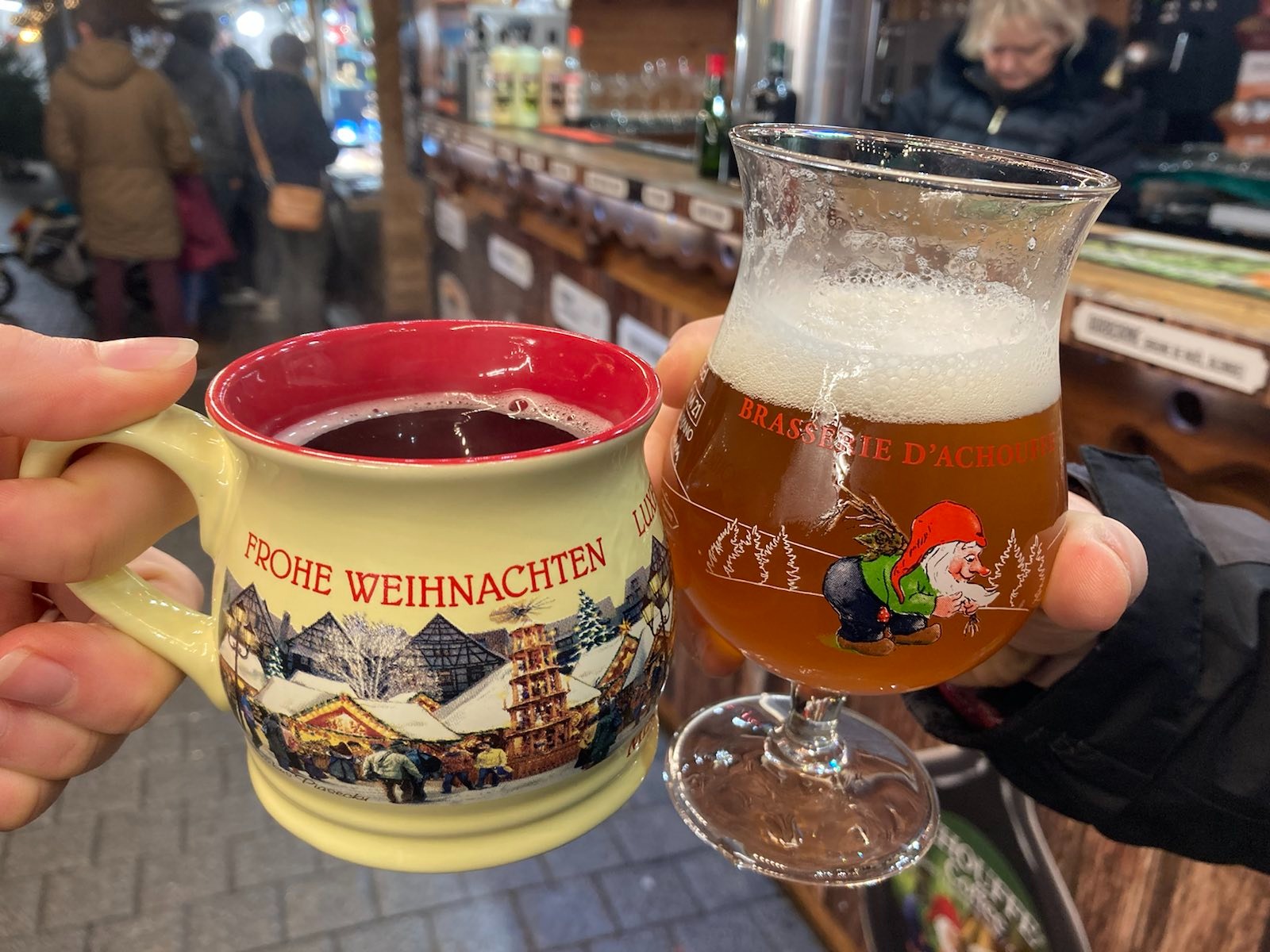 Glühwein and beer at the Christmas market
Glühwein and beer at the Christmas market
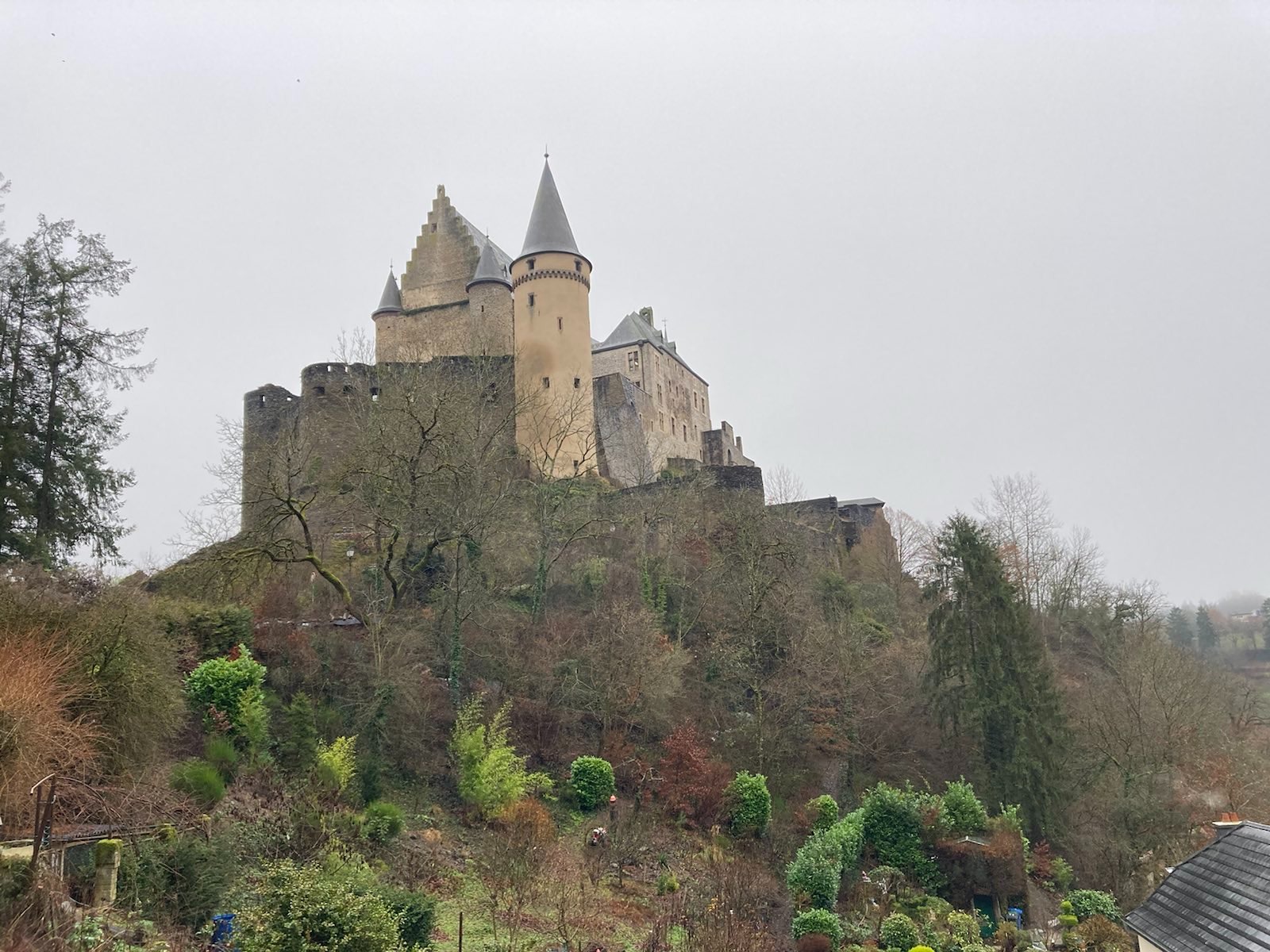 Castle in Vianden, Luxembourg
Castle in Vianden, Luxembourg
Oberstdorf
In January, we decided to do some snow hiking in the Alps. Oberstdorf is a beautiful mountain town that was an easy 3 hour train ride from Frankfurt. We stayed in a traditional, wooden German bed and breakfast and went hiking every day. The town layout is such that you can stay in the center of town and walk to the trailheads, once again, no car required!
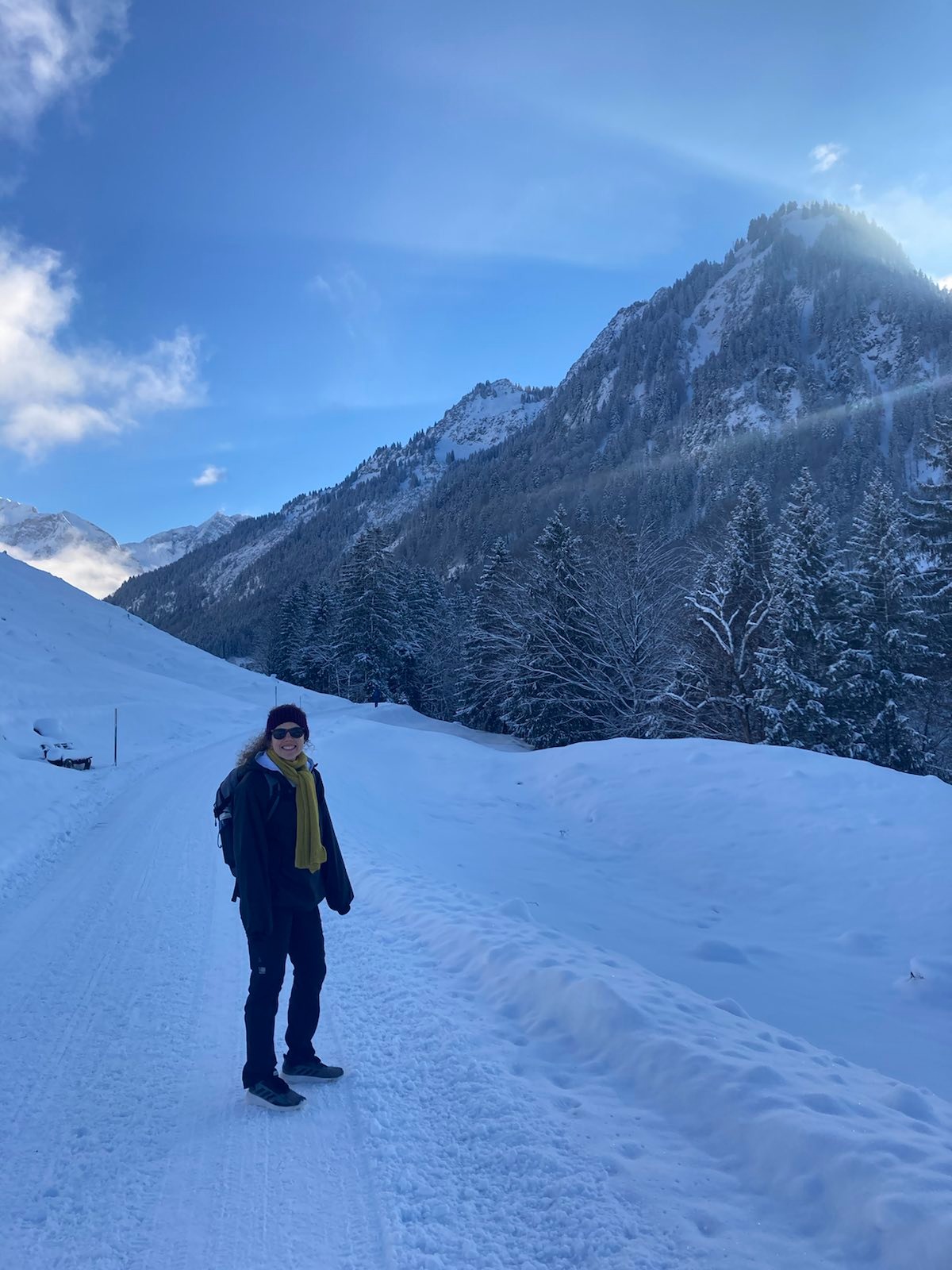 Hiking high in the mountains
Hiking high in the mountains
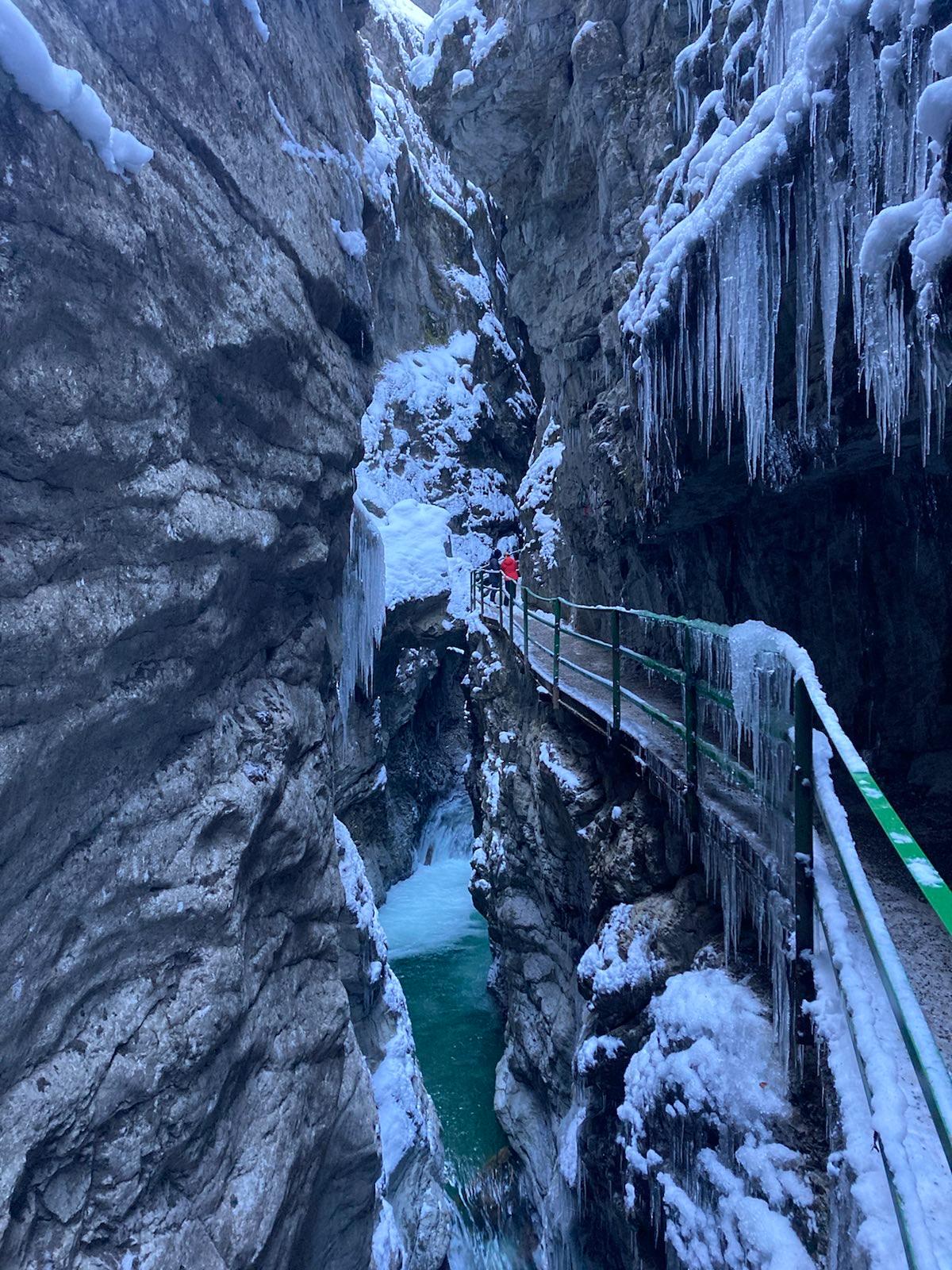 Nearby Breitachklamm gorge
Nearby Breitachklamm gorge